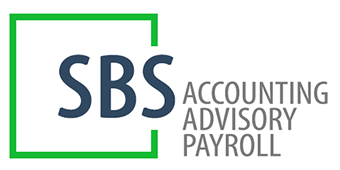The Extended Producer Responsibility (EPR) system, which will begin in July 2023, will make more difference in the lives of businesses than many currently anticipate, but at the same time, there is less time to prepare as the deadline approaches. Although there are still many unknowns, the new EPR will undoubtedly impose a significant additional administrative burden on many eligible companies, as the requirement to pay an environmental product fee will not be eliminated.
The New EPR Fee Will Also Transform the Environmental Product Fee System
The decree establishing the detailed rules for Extended Producer Responsibility (EPR) clearly defines the product streams that will be subject to EPR fees (the product groups covered by the system).
Companies subject to EPR fees
Companies currently subject to product fees
Companies that transfer circulating products in Hungary for free or for a fee
Companies that import products from abroad for domestic sale or for their own use
Enterprises that purchase packaging and sell the packaged products. (Important. It is not the corrugated box manufacturer that is responsible, but the company that sells the product in the corrugated box.)
Product flow, circulating products affected
Packaging
Certain disposable plastic products and other plastic products
– Food containers, bags or packaging made of flexible materials, beverage containers with a maximum capacity of 3 liters, beverage cups, lightweight plastic carry bags, wet wipes, balloons, filtered tobacco products, fishing tackle
Electrical and electronic equipment
Batteries and accumulators
Vehicles
Tires
Office paper
Commercial printing paper
Edible oils and fats
Textiles
Wooden furniture
*Comparison with product-specific rates
This clearly shows that the EPR product stream overlaps with nearly all products subject to the environmental product fee.
To avoid double payments for the same product group (both product and EPR fees must be paid for the same product), the product fee regulations were amended simultaneously with the introduction of the EPR to allow EPR fees to be deducted when calculating product fee liability.
Dual Control and Dual Fees
Looking at the regulations, it is clear that anyone currently affected by product charge liability will always be subject to the EPR fee. Obviously, only one of the two fees will be paid, but even if the rules only require payment of the EPR fee, both rules will impose registration, filing, and payment obligations on businesses.
It is not a mistake to assume that there is a double registration and declaration obligation for the same product stream. Businesses that have paid product fees in the past and will pay EPR fees in the future are not exempt from their obligations regarding product fees.
The rates are not yet known, but according to the principles of calculation, it is likely that the EPR fee will exceed the product fee previously paid for that product, so the product fee declaration will only need to indicate that no product fee was paid for the product under the EPR liability.
Many Questions, Short Time, Many Challenges
Several questions may arise regarding the future application of the EPR, but the deadlines set by the law are so tight that businesses do not have much time to fret over them.
Let’s take a look at what businesses subject to the EPR should do.
The first step for businesses is to clarify the extent to which their EPR responsibilities will affect them.
1. mandatory registration
Companies must register with the MOHU by the end of April. Detailed information on the registration process, which has already begun, can be found on the MOHU website.
2. Registration and Recordkeeping System
After registration of the MOHU, entities affected by the EPR must apply for registration with the waste management authorities by May 31, which is not yet possible.
After successful registration, all entities involved must prepare a records management system to track the movement of relevant products from July 1.
3. regular payment of EPR fees
The first filing will take place at the end of the third quarter when the EPR fee is first paid.
The range of products and companies covered by the EPR has expanded significantly, but some companies are not yet aware of it.
In RSM’s experience, a significant percentage of companies are not yet aware of the EPR system and the obligations associated with it.
This is especially true for companies that were not previously subject to product charges and are affected by the new product streams subject to EPR (textiles, furniture).
This is a completely new system for them, which creates not only administrative burdens but also payment obligations. Textile products are defined as a very broad category in the EPR regime and will cover not only manufacturers but also all businesses that import such products from abroad for their own sale or use.
Packaging materials are a good example of the questions surrounding the new EPR fee. The broadest product stream affected by the payment of the product fee is packaging materials. This product stream is also affected by the EPR, but not in the same way whether the business manufactures packaging or generates packaging.
In the past, manufacturers of packaging materials paid a product fee when they sold packaging materials to a firm that packaged products in those materials.
However, the EPR now requires that the businesses that manufacture packaging materials, i.e., those that package and sell products using the purchased packaging materials, pay the fee. Previously, these businesses were not affected by the product fee. For them, the EPR is a new obligation that many are not yet aware of.
Furthermore, since there are exceptions to the above rules, we strongly recommend that you seek advice on the assessment of product charges and the impact of packaging on the EPR in order to avoid future misunderstandings.
Waste Management Authorities and MOHU Replacing the Hungarian Tax Authority
It is of particular relevance and interest to the EPR that the Hungarian tax authorities have little to do with the EPR insofar as they adjust product charges.
The Waste Management Authority oversees the EPR obligations and is responsible for the work of the Authority. This authority is the body with which entities must register and file quarterly returns. However, EPR fees are paid to the concessionaire, MOHU, not the authority.
This name should be kept in mind because as a concessionaire, MOHU plays a major role in waste management. In addition to coordinating the operational tasks of waste management, it is also the recipient of the EPR fee, the amount of which is used for operational tasks.
This means that the fees previously paid to the central budget have been transferred to the concessionaire engaged in waste management.
It is doubtful how the waste management authorities will deal with this task, as the Hungarian tax authorities have considerable experience in handling the obligations of hundreds of thousands of taxpayers.
In any event, the law states that waste management authorities are responsible for EPR fees. Thus, any disputes regarding payment of fees, obligations, or questions of general interpretation would be referred to the waste management authority. It is also the authority and duty of the waste management authority to administer the system and impose penalties.






Comments are closed.